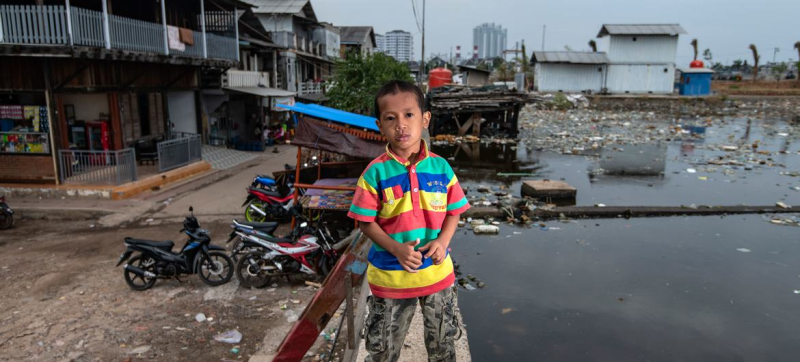- Dhaka’s air recorded unhealthy on Friday morning |
- Teesta activists announce ‘Silent Rangpur’ campaign in 5 districts |
- Ceasefire Offers Lifeline, but Gaza Hospitals in Ruins |
- Christensen calls next election most consequential in decades |
- OIC Condemns Knesset’s Annexation Law, Supports ICJ Advisory Opinion |
UN Climate Chief Urges Swift Finance Ahead of COP30

This concrete barrier in Jakarta, Indonesia, is not enough to stop the Java Sea flooding nearby communities during the rainy season (2024)
UN Climate Change chief Simon Stiell has urged countries to deliver a rapid surge in climate finance ahead of COP30, warning that developing nations remain dangerously short of the resources needed to withstand worsening storms, floods, and droughts.
The head of the UNFCCC on Tuesday called for finance to “flow right now”, as delegates prepare to gather in the Brazilian city of Belém next month for what is being seen as a crucial summit to turn promises into action.
Whether or not countries need to be prepared to cope with a changing, more unpredictable climate is no longer in question: extreme weather events such as devastating wildfires, catastrophic droughts, and apocalyptic floods are making life increasingly difficult in all parts of the world — and, for the inhabitants of sinking Pacific island states, even impossible.
There are many examples of effective measures that countries can take to adapt to this new normal, ranging from high sea walls to cyclone warning systems, floating homes, and planting drought-tolerant crops.
However, it all costs money — a lot of money. Estimates from the UN Environment Programme (UNEP) put the figure at between $160 billion and $340 billion annually, but just a tiny fraction of that amount is actually reaching developing countries.
Livelihoods destroyed
On Tuesday, UN Climate Change released a new report detailing the progress countries are making on their National Climate Adaptation Plans (NAPs). It confirms that the persistent funding gap risks derailing many of the plans now being implemented.
Speaking at the launch in the Brazilian capital, Brasília, Simon Stiell stressed that the climate crisis is destroying lives and livelihoods in every region of the world — especially in the most vulnerable countries — and that “adaptation is not optional; it is absolutely essential.”
The UN climate chief said adaptation would not only protect lives but also help empower communities and countries to thrive.
National Adaptation Plans, he declared, are “key to unleashing the epic transformative power of investing in climate resilience.”
Plans up and running
Despite the funding challenge, progress is being made: 67 developing countries have submitted plans — including 23 from least developed countries and 14 small island developing states — with an approach that engages more women, young people, Indigenous Peoples, local communities, and the private sector.
These plans outline priorities and needs, which Mr. Stiell suggested should make it more straightforward for investors and financial institutions to fund climate adaptation.
The report comes 19 days before the opening of the COP30 UN climate conference in the Amazonian city of Belém, where adaptation and the funding gap will be central issues for negotiators aiming to mobilise $1.3 trillion in climate finance.
Looking ahead to the UN summit, Mr. Stiell said it would be a “key test of global solidarity” that must “connect climate action to real lives everywhere, to spread the vast benefits.”

